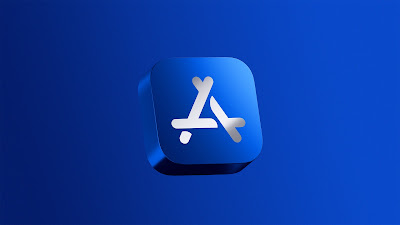Tech Roundup: Apple $3 Trillion Market Cap, NVIDIA Omniverse & More
[A recurring feature on the latest in Science & Technology.]
- China unveils new regulation, jointly drawn by the Cyberspace Administration of China (CAC), the Ministry of Industry and Information Technology, the Ministry of Public Security and the State Administration for Market Regulation (SAMR), that aims to rein in recommendation algorithms used on apps to offer personalised suggestions on what consumers would like to read, watch, play and buy online; rolls out a pilot version of its e-CNY wallet app for the digital yuan in a push to expand its usage to more people and develop a sovereign digital currency.
- Apple briefly reaches a market capitalization of US$ 3 trillion, almost four years after it hit US$ 1 trillion in 2018 and US$ 2 trillion in August 2020.
- The Chinese government steps up crackdown on financial products and services promoted on social media as part of its latest efforts to set boundaries between the financial sector and internet platforms; requires that only those licensed with "relevant industry qualifications" are allowed to promote financial products and services through live-streaming or social media, a decision that would illegalise sales of banking, insurance and securities services by most online influencers.
- Meta's WhatsApp bans 1.75 million accounts in India in November 2021 over user safety concerns; Oculus VR headset device sales in 2021 touches an estimated 5.3 million to 6.8 million units, up from approximately 3.5 million units in 2020.
- Google acquires Israeli cybersecurity specialist Siemplify, reportedly in a deal worth US$ 500 million, to beef up its operations in cloud-based and enterprise security; to be folded into Google Cloud's Chronicle unit.
- ByteDance-owned TikTok begins testing a Repost button that lets users repost videos from their "For You" feed to mutual friends' "For You" feeds.
- South Korean tech giant Samsung debuts Gaming Hub for Samsung TVs, offering support for Google Stadia, NVIDIA's GeForce Now, and Utomik cloud gaming; says its 2022 TVs will support browsing, displaying, and purchasing non-fungible tokens (NFTs), as well as viewing their history and blockchain metadata; launches Galaxy S21 FE (Fan Edition) with a 6.4-inch display, Snapdragon 888, 120Hz refresh rate, triple-lens rear camera, and a 32MP selfie camera for US$ 699.
- TCL says it sells over 10 million TVs with Android TV and Google TV each year, as Google surpasses 80 million accounts that are using Android TV operating system; teases second-gen NxtWear Air wearable secondary display that's 30% lighter and comes with 1080p OLED screens but no AR/VR features.
- Intel overhauls its lineup with 12th Gen Core Alder Lake processors, including 22 desktop CPUs ranging from US$ 42 to US$ 489 and eight H-Series laptop CPUs; comes with a new Core i9 that features a 14-core CPU with six performance cores and eight efficiency cores, in comparison to the 10-core M1 Max chip that has eight performance cores and two efficiency cores.
- LG smart TVs released in 2021 and later this year to be equipped with a health education and telehealth app from the senior-focused health platform Independa, allowing users to set up and have telehealth appointments through their TV sets.
- Chipmaker NVIDIA launches Omniverse, billed as a metaverse for designers, researchers and engineers, out of beta, and announces a free version, as the real-time collaborative design tool crosses 100,000 creators since its launch in 2020.
- AMD announces Ryzen 6000 "Rembrandt" Mobile processor series for laptops with support for Microsoft's new Pluton security processor that's designed to securely store sensitive data, like encryption keys.


Comments
Post a Comment